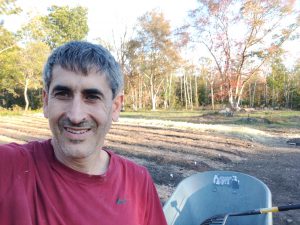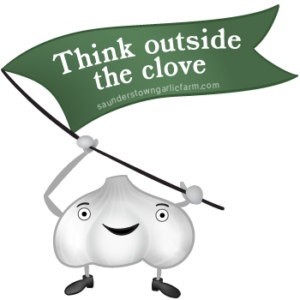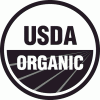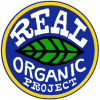 When life give you lemons …. make a garlic farm.
When life give you lemons …. make a garlic farm.
The gypsy moth caterpillars invaded our neighborhood about 5 or 6 years ago, resulting in the loss of nearly every oak tree on our 8-acre wooded property. Hundreds of trees were killed over the course of 3 seasons, as they all eventually succumbed to the relentless assault from this invasive vermin. The sound of the chewing, and the little pieces of leaves and caterpillar droppings crashing to the forest floor, was unnerving and blood-curdling. You couldn’t take a step without stepping on a slew of them and our house was covered. DISGUSTING!
There was but one option. We cleared about an acre, and slowly began the process of turning a forest of dead trees into the most magnificent garlic farm the world would ever see. We don’t come from a family of farmers so this was easier said than done. There was a lot of research involved to devise the best strategies to amend the soil, consultations with other growers and extension professionals at the University of Rhode Island to learn about the industry and business models, and; a long, slow process of earning organic certification.
Some great things about garlic (hint: this is why garlic is great for beginners): nothing eats it (except humans with good taste), it’s relatively easy to grow and is very hearty, every garlic clove creates a bulb with 4-15 cloves that you can plant the next year. We started our farm with a $20 investment in a couple pounds of organic garlic that we used as our seed. In Year 1 (2019) we planted 300 cloves, in 2020 we turned that into 850 beautiful garlic plants and in 2021 we planted nearly 5,000 cloves which will produce scapes in late June with the garlic bulbs ready to harvest in early July.
Why organic? From the start, we knew we wanted our contribution to the food supply and our community to be sustainable; this is better for our health, better for the planet and most importantly: organic food tastes better! We tested our soil and developed a comprehensive plan to improve the pH; started the process of ridding the land of briars, bittersweet and and  resilient and invasive weeds, and; removed hundreds of tons of rocks and boulders. Every input into our soil is carefully considered and applied. We only use OMRI-certified inputs including lime, fertilizer and inoculants, as well as compost that is approved by our organic-certifier (Rhode Island Department of Environmental Management). But for us, following organic guidelines in itself is not sufficient to meet our values.
resilient and invasive weeds, and; removed hundreds of tons of rocks and boulders. Every input into our soil is carefully considered and applied. We only use OMRI-certified inputs including lime, fertilizer and inoculants, as well as compost that is approved by our organic-certifier (Rhode Island Department of Environmental Management). But for us, following organic guidelines in itself is not sufficient to meet our values.
Cruelty-free garlic. Throughout this journey, one thing we have learned is that most fertilizers – even the organic ones – contain blood meal (dried animal blood), bone meal (powdered animal bones) and/ or feather-meal (feathers of chickens). These components are considered organic, regardless of the way the animals were raised or treated. These are by-products of the factory-farm industry which is inherently inhumane and cruel. After an extensive search Aaron (who is vegan) found OMRI-certified vegan fertilizer. It is very expensive, but, it is cruelty-free and it smells great! When you buy your garlic from Saunderstown Garlic Farm, you can be sure that you are getting a product that is thoughtfully grown, harvested and sold through every step of the process.



